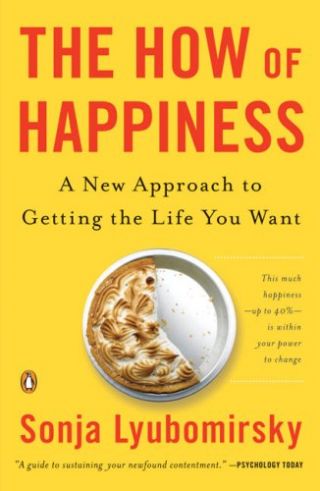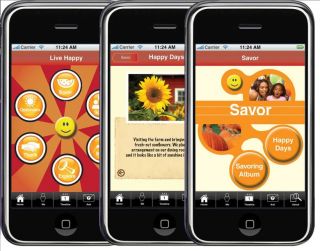One of my main research interests is the evaluation of self-help approaches. I want to know which self-help approaches work and which don't so that psychologists and life coaches can confidently recommend resources to consumers. In this blog post, I will give some examples of how this type of research is done so that, when I say "this is effective according to research," you have an idea of how I might have reached that conclusion.

One of the books we evaluated in a recent study published by my lab.
Last year, in collaboration with a student of mine, Rebecca Szanto, I did a study looking at how one positive psychology self-help book, The How of Happiness, worked to decrease depressive symptoms and to increase happiness in college freshmen. Participants were randomly assigned to read HoH or a book that focuses on correcting negative thinking and reducing depression symptoms (Control Your Depression). Each book provided a set of concrete activities to try, and we also gave participants a syllabus to follow for each week of the 8-week period they had to finish. We found that both books would work better than whatever people were doing naturally (we also had a no-book control group), but that participants liked HoH better because it focused on building new sources of happiness—which is somewhat more fun than trying to fix one's deficiencies (you can find the full paper here if you are curious).
I also published a paper in 2013 with my colleagues at UC Riverside looking at the effectiveness of a cell phone app called Live Happy, which was designed based on the content of The How of Happiness (you can find the actual paper here; it's Study 3). Participants were simply people who bought the app. We found that, not surprisingly, people who used the app more experienced more improvement in their mood. More interestingly, we found that people who chose a variety of activities benefitted more than people who spent the same amount of time practicing, but on a limited range of activities. This type of study is more realistic, but also less controlled—there's no control group, and participants didn't follow any set of instructions from us. They just did what they wanted when they felt like doing it.
Screenshots from the LiveHappy app, which we also studied in a recently published paper. So research on positive psych activities varies quite a bit—there are studies that are in-person and on college students (not that realistic) and pretty controlled (they had a syllabus to direct their efforts each week), and there are studies that are realistic (a smartphone app being tested in people who buy it) but uncontrolled study. By combining these types of methodologies, we can get the best possible pictures of what works and what doesn't.

Screenshots from the LiveHappy app, which we also studied in a recently published paper.
So research on positive psych activities varies quite a bit—there are studies that are in-person and on college students (not that realistic) and pretty controlled (they had a syllabus to direct their efforts each week), and there are studies that are realistic (a smartphone app being tested in people who buy it) but uncontrolled study. By combining these types of methodologies, we can get the best possible pictures of what works and what doesn't.
The current study I am working on hopefully provides a compromise between these two types of designs—the participants are people interested in happiness (like you, perhaps) and it'll be conducted over the web, where many popular self-help sites exist. If you are a self-help user or a person who wants to try a self-help approach, and you would be interested in participating in my current study, please visit this web page for more information. If you are a coach or therapist, please don't enroll in the study yourself (we are really interested in getting a realistic sample of self-help consumers), but you are welcome to forward the link to clients who you think might be interested.


